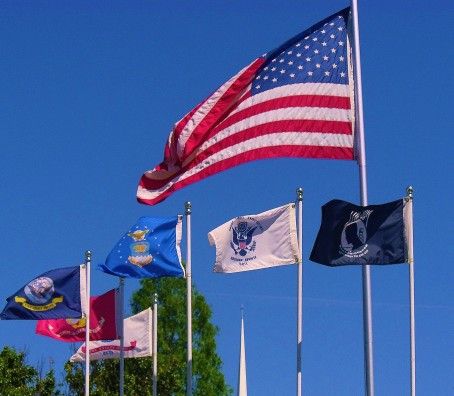Veterans Administration Benefits Threatened By New Proposal Act Now to Prevent This
he Veterans Administration has proposed new regulations that would penalize war time veterans for using asset protection plans and gifting assets for less than fair market value. This would hurt Korean and WWII veterans and exacerbate the claims process.

Congress introduced two different bills, between 2012 and 2014, each proposing a three year look back penalty. Neither bill passed. That has not stopped the VA from moving forward.
On January 23, 2015, VA has proposed new Veterans Administration regulations. These regulations would hurt and penalize wartime vets, specifically Korean and WWII Veterans, but it will also exacerbate an already overburdened claims system.
The new proposal would penalize war time vets up to 10 years for using “asset protection” steps and gifting assets for less than the fair market value.
The Veterans Administration is trying to stop lawyers and financial advisors from what the organization perceives as “taking advantage of veterans” when assisting them to strategically utilize an asset protection plan to preserve assets. This would allow the veteran to qualify for the Improved Aid and Attendance Pension Plan.
The proposed changes to the Veterans Administration Benefits would:
- Establish a 3 year look back for gifting of assets
- Impose penalties for up to 10 years
- Create a bright-line net worth standard of $119,220, which includes annual income
- Deny any expenses related to independent living facilities as care costs
- Require Veterans to sell their home place property, if the lot coverage exceeds 2 acres.
How will this affect the Veterans?
When a veteran or widow of a veteran initiates an application for the Improved Pension with Aid and Attendance, they will asked, if there were any gifting or transfer of assets made, that were for less than the fair market value. Was this gift or transfer made in the past three years prior to the application.
If there was a transfer of assets, it will be presumed, this was done for the purpose of meeting the eligibility standards for the Veterans benefits.
Penalized gifts include:
- gifts of money or assets to children
- establishing estate plans with the use of trusts
- establishing retirement plans through the use of annuities which can provide a life time income stream.
There is also a “net worth” standard will include income:
- high income earners will be allowed to have low to no savings for emergency items
- low income earners will be permitted to keep much more in savings.

There are some very serious issues at stake here. The VA has very strict rules on how they define “medical care”. Those veterans diagnosed with dementia, Alzheimer’s disease or other degenerative disorders that presently live in independent living or assisted living facilities ,because they need a safe environment, will not be eligible for any benefits, because they may not require assistance with activities of daily living.
Although a person with cognitive decline is unable to live home alone, the VA refuses to consider any expenses for care, paid to a facility, as a deductible from the claimants income, unless the veteran needs assistance with at least two activities of daily living.
To fight these new proposed regulations, everyone who cares about a vet must respond.
Public comments must be received no later than March 24, 2015 and can be sent through http://www.regulations.gov -When you get to the site just cut and paste this into the search box and leave your comment. “RIN 2900-AO73, Net Worth, Asset Transfers, and Income Exclusions for Needs-Based Benefits.”
or by mail or hand-delivery to: Director, Regulation Policy and Management (02REG), Department of Veterans Affairs, 810 Vermont Ave. NW., Room 1068, Washington, DC 20420; or by fax to (202) 273-9026.
Comments must include that they are in response to “RIN 2900-AO73, Net Worth, Asset Transfers, and Income Exclusions for Needs-Based Benefits.”
Update 2023 on VA Benefits
For Further Information
Contact Martha Schimpf, Analyst, Pension and Fiduciary Service, Veterans Benefits Administration, Department of Veterans Affairs, 21P1, 810 Vermont Ave. NW., Washington, DC 20420, (202) 632-8863. (This is not a toll-free number.)
SUPPLEMENTARY INFORMATION:
The Department of Veterans Affairs (VA) administers a needs-based benefit, “pension,” for wartime veterans and for surviving spouses and children of wartime veterans. The current pension program was established by the Veterans’ and Survivors’ Pension Improvement Act of 1978, 95, 92 Stat. 2497, and became effective January 1, 1979. The statutory authority for pension is 38 U.S.C. chapter 15, implemented at 38 CFR 3.271 through 3.277. As further explained later in this Notice of Proposed Rulemaking (NPRM), VA proposes to amend 38 CFR part 3 to preserve program integrity because we have received information that, under current regulations, claimants who are not actually in need may qualify for these needs-based benefits. For clarity and consistency, some of the changes we propose would apply to other needs-based benefits as well. Although new pension claimants may qualify for pension only under the current program, VA still pays benefits under two prior pension programs. In addition, new claimants may qualify for parents’ dependency and indemnity compensation (parents’ DIC) under 38 U.S.C. 1315. Regulations pertaining to all of these older programs are found at current 38 CFR 3.250 through 3.263.
As a preliminary matter, we propose to refer to the current pension benefit as “pension,” rather than referring to “improved pension. "See 38 CFR 3.3(a)(3). When specificity is required in VA regulations to distinguish between veterans and survivors, we propose to refer to “veterans pension” and “survivors pension” instead of “disability pension” and “death pension.” We have determined that the term “disability pension” is a misnomer because a veteran who has attained age 65 does not need to be disabled to receive pension. See 38 U.S.C. 1513. We also note that subchapter II of 38 U.S.C. chapter 15 is titled “Veterans’ Pensions” and subchapter III is titled “Pensions to Surviving Spouses and Children.” The proposed terms would be consistent with the titles used in the statutes.
Our Resources section can help you find the information and tools that you need. We have courses, videos, checklists, guidebooks, cheat sheets, how-to guides and more.
You can get started by clicking on the link below. We know that taking care of a loved one is hard work, but with our help you can get the support that you need.
Click here to go to Resources Section now!





